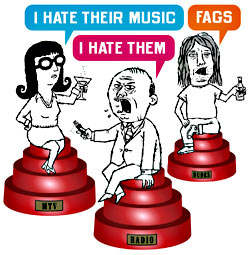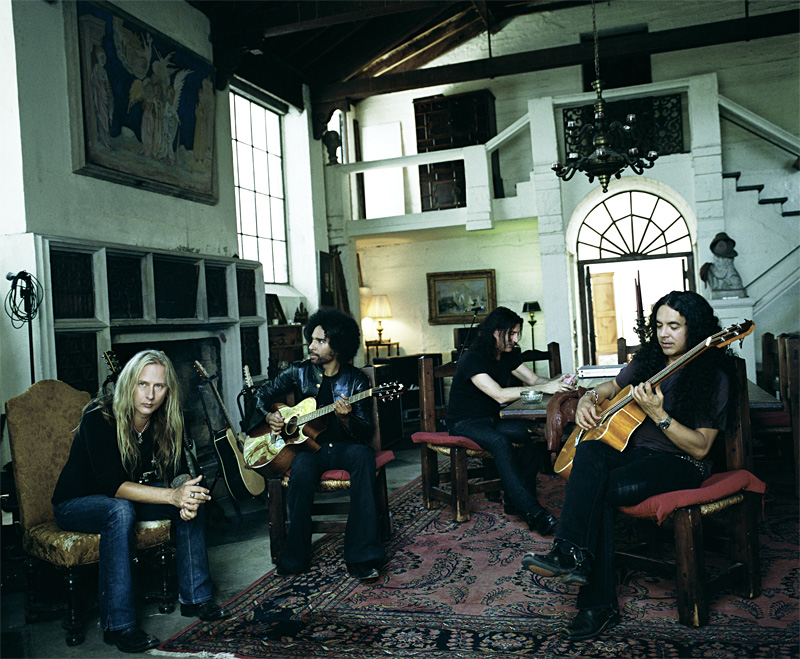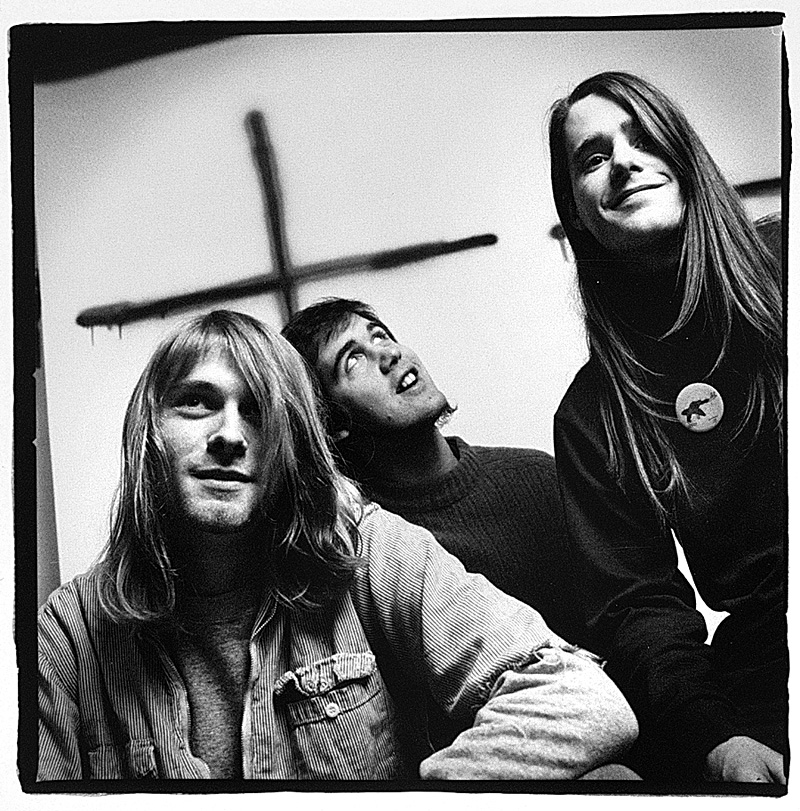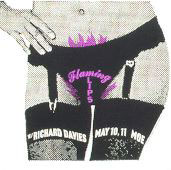In the early ’70s, Gerald Casale was a student at Ohio’s Kent State University, majoring in comparative 20th century English literature. Then, on May 4, 1970, the National Guard, in an event that would become infamous in the nation’s history of anti-war protests, gunned down four students, two of whom Casale knew. At that moment, everything changed.
“It was the beginning of the real end,” Casale says today. “You saw how fast your supposed democracy can turn into a police state, how the media can be manipulated. It taught me a huge lesson, and I was never the same again. I became so politicized and so aware of illegitimate authority and duplicity that it sparked me to get much more aggressive and much more angry in my art. Which led to Devo.”
Ah, Devo—those industrial suit-wearing social satirists who predated new wave, synth-pop, MTV, and the dumbing down of mainstream culture; all things that today we take for granted. “Nobody even argues that things devolved,” concurs Casale. “People know that devolution is real right now. ‘Devolution,’ while partly a college prank, had underpinnings that were quite serious about attacking the fundamental assumptions of a society that seemed to be going off base. We saw the ’70s as the start of what ended up being an exponential slide, the devolution that we see today.”
Not that people were necessarily grateful at having that pointed out. At the band’s first performance in 1973, the debut of such later classics as “Jocko Homo” (with its trademark query “Are we not men?”) provoked the crowd into rioting. “Yeah, we got physically attacked,” Casale says, still sounding pleased. “We took that as a sign that we were really onto something!” Once signed to a major label, they faced further opposition from radio programmers who “still only liked Led Zeppelin in their heart of hearts. Then here come these guys all dressed alike with this precision act and short haircuts, and they just thought, these guys are nerds, they’re fags, we hate their music, we hate them.”
Devo finally broke through to the masses (“by accident,” Casale insists) when “Whip It” became their sole Top 40 hit. “MTV put our videos on when they were only on in three cities,” he says. “And the day they went national they tied their playlist to the Top 40 and stopped playing them. They only played ‘Whip It’ because it was a radio hit. Then they ended up rejecting our videos because of ‘content issues.’ In ‘That’s Good’ we had a french fry going through a donut hole they said, ‘No, you can’t do that, we know what you’re talking about.’ They turned into the biggest devil, the biggest hypocrite.”
The group’s last new album was 1990’s Smooth Noodle Maps, after which singer/guitarist Mark Mothersbaugh decided to focus on his career scoring for films and TV; the band has since toured when it suits Mothersbaugh’s schedule (“It’s better than nothing for me,” says Casale). Though Casale dashes hopes there will ever be a new Devo album, the group did reunite to record two new songs for “Devo 2.0” (whose self-titled album was released this year), which features five youngsters singing kid-friendly versions of Devo songs. “We could get our music out to a group of people who were nowhere near being born when we were touring, and who otherwise would never know about Devo,” explains Casale, who also directed all the videos for the project (he’s also directed videos for Foo Fighters and Soundgarden, among many others).
And Casale has his own side project, Jihad Jerry & The Evildoers. “It’s born out of the frustration of not putting out new Devo material,” he explains. “I just went back to the roots of what I brought to Devo, which was blues and rhythm and blues, but my twisted take on it. ‘Jihad Jerry’ — it’s of course a joke, it’s a device.” The album’s title, Mine Is Not a Holy War, is also something of a credo; “Mine is not a holy war; it’s a war on mass stupidity and that is as thankless and endless as the war on drugs,” Casale contends.
Which is precisely why Devo’s songs still have a resonating power; the dance-pop beat gets the crowds cheerfully singing along seemingly oblivious of the disturbing sentiments often expressed in the lyrics. “But that’s good that they don’t get it, in a way,” says Casale. “If people had realized what Bob Dylan was singing about, he wouldn’t have had any hits either. You’ve got to be liked for the wrong reasons to be popular.”








